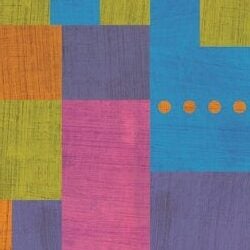Nardeen Ayad and Amit Kumar were selected this year as the Center for Health Decision Science Educational Innovation Scholars. Scholars work part-time on a variety of projects that support new instructional models and pedagogical approaches to teach decision science. Educational innovation initiatives at the Center for Health Decision Science (CHDS) are supported in part by the Alan Colowick Innovation Fund.
The Educational Innovation Scholars are currently working with CHDS faculty to develop case-based tutorials that help students learn how to use the open-access modeling software Amua. Most decision science software requires upfront and ongoing costs that may be prohibitive for both students and for analysts particularly in low and middle-income countries. “I developed Amua to provide open-source software that can be freely used by students and researchers interested in decision analytic modelling,” says Zach Ward, author of Amua and a Research Scientist at the Center for Health Decision Science. “The tutorials supported by the Alan Colowick Innovation Fund will give users hands-on experience in using the software, and aligns with the equity-principled vision of CHDS to make educational resources freely accessible.” Nardeen Ayad agrees, sharing, “This is a great opportunity to deepen my understanding of decision science modeling methods and tools and to contribute to the CHDS resource repository.”
The Amua tutorials are part of a broader CHDS initiative to develop open-access decision science teaching materials that support pilot courses for high schools and community colleges, online learning experiences for graduate students, and self-paced modules that can be adapted for different settings. The case-based tutorials and accompanying resources will be made publicly available in the CHDS open-access resource repository.
More about the Educational Innovation Scholars
Nardeen Ayad, MD, MSc
Nardeen is a pediatric hematologist and recent graduate of Master of Medical Sciences in Clinical Investigation at Harvard Medical School. She completed her medical degree and specialty training at Cairo University, and double-majored in economics and international development. She has worked as a health economist for the WHO, UNICEF and World Bank Group. She is currently a pediatric hematology consultant in Cairo University Pediatrics Hospital and teaching assistant of economics in the American University in Cairo. Nardeen hopes to build on her background in medicine and economics, and leverage her growing decision analytic skills to influence health policy and practice. “My long-term goal is to improve health care service provision, in particular for vulnerable groups such as children.”
What about Decision Science caught your attention? “Every day in the clinic, we are constantly put in situations where we need to make decisions,” notes Nardeen, adding, “Some are routine and automatic because the problem is straightforward, but often there are trade-offs and opportunity costs. Decision science gives us a structured process to take into account preferences, uncertainty, and all of the potential consequences.”
Amit Kumar, BS
Amit is a second year graduate student at the Harvard T.H. Chan School of Public Health pursing an MPH in the field of Health Policy. He graduated from the University of California, Los Angeles (UCLA), earning a BS in Physiological Science. As an undergraduate, he conducted research in learning and memory neuroscience, community health, and health policy. After graduation, Amit worked at an autoimmune clinic as a clinical research coordinator, conducting research on rheumatic diseases including gout, lupus, and psoriatic arthritis.
Amit aspires to build on his education in public health with medicine. “I want to attend medical school and train to be a physician – one who, of course, leverages decision science methods to optimize patient care!”
What about Decision Science caught your attention? “For me, the interdisciplinary nature of the field instantly caught my attention. During my first semester at Harvard, I took courses in economics, health policy, and biostatistics and it wasn’t until I took a decision science course that I realized how interconnected these seemingly diverse fields are within the public health space.”
More about the Alan Colowick Innovation Fund
The Alan Colowick Innovation Fund supports CHDS in pursuing high-value opportunities and initiatives that align with their core mission. Colowick was inspired to incorporate Decision Science into his practice of medicine and subsequent roles in the pharmaceutical and biotech industries by a course he took with CHDS’ Milton Weinstein during his MPH training at the Harvard T.H. Chan School of Public Health. The Innovation Fund currently supports work to broaden the scope and reach of educational efforts through the development of novel instructional models, short-form multimedia content, and case-based learning experiences.
Learn more: Read about Colowick’s gift in the Harvard Public Health Magazine story, Maximizing Outcomes through Better Decision Making: Alan Colowick Innovation Fund
Learn more: Explore the CHDS Modeling and Tools page
Related news: Student Software Used in Course
